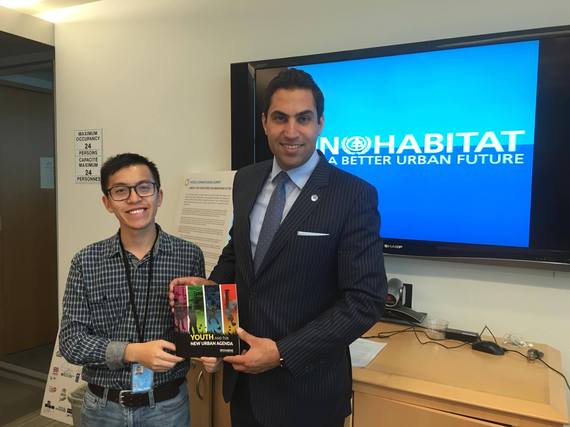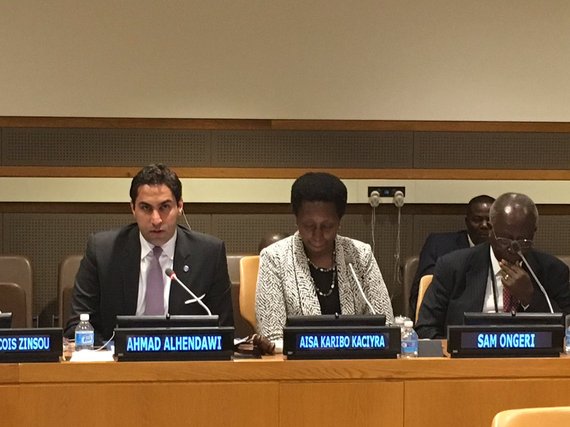Co-authored by Natasha Ardiani
The world is more becoming more urban by the day. The United Nations project that by 2050, 70% of the world population will reside in urban areas, "making urbanization one of the 21st century's most transformative trends". As the world population is increasingly urbanized, so will many of our challenges across all segments of society.
The battle for sustainable development will be won or lost in cities. It is on the sidelines of rapid urbanization--of population, poverty, social inequality, and climate change, among others--that the United Nations is convening the Conference on Housing and Sustainable Urban Development (Habitat III) in Quito, Ecuador, this October. Despite the dilemmas that cities face, they are also the locations for creative experimentation and interventions. The New Urban Agenda, the outcome document of this upcoming conference, is aspiring to become a radical and transformative tool that will guide global thinking and action on urbanization for the next twenty years. Before this document can achieve this goal, it must address many gaps present in the current draft, among them the lack of focus on youth and implementation mechanism.
Around the world, young people have shown their tremendous competencies and leadership in creating positive change. However, their potential remains largely untapped and uninvested. With as many as 60% of the world urban population predicted to be under the age of 18 in 2030, and with many pockets of youth concentrated in developing countries, this neglect is dangerous and socially, environmentally, and economically expensive. There is no time for hesitancy and compromise. Young people must be placed at the center of the New Urban Agenda and empowered in the three-pronged approach to sustainable urbanization: urban rules and regulations, urban planning and design, and municipal finance.

Mr. Ahmad Alhendawi, UN Secretary General's Envoy on Youth, handed the "Youth and the New Urban Agenda" report.
Last week, the United Nations Human Settlements Programme (UN-Habitat) hosted the "Youth and the New Urban Agenda" event oriented around the publication of its recent report on the integral role of youth in urbanization. Mr. Purnomo Chandra, Minister Counselor at the Permanent Mission of Indonesia to the United Nations, stated, "These are young people who are looking to better themselves, their communities, countries and the world. They are seeking to be educated, looking for jobs, finding a place to live and starting families. Their youthful energy and innovation can be a positive force for change at all levels if they are pro-actively engaged as partners." His opinions were both echoed by the representatives from the Mission of Kenya and the Mission of Canada to the United Nations.
To realize the New Urban Agenda and empower young people in the process, there needs to be a strong implementation mechanism. The good news is that one currently exists: UN-Habitat, an agency created after Habitat I upon worldwide recognition of rapid and unchecked urbanization, and tasked with the mission of providing adequate shelter to all, in light of the rapid proliferation of slum settlements. Member States and stakeholders must use Habitat III as an opportunity to strengthen UN-Habitat and expand its mandate to oversee the employment and review of the Agenda. After all, UN-Habitat is the United Nations' only agency with a mandate directly focused on urban areas, so it possesses the professional knowledge and expertise to successfully lead the New Urban Agenda.
As a member of the UN-Habitat Youth Advisory Board, a body mandated by UN-Habitat to advise the Executive Director and UN-Habitat programmes on youth issues, and democratically elected by nearly 100,000 youth globally, I will engage with various partners to build on the achievements of UN-Habitat, especially UN-Habitat Youth given the tremendous concentrations of youth in urban areas, and strengthen them through the New Urban Agenda. It is clear that much more work needs to be done in the days leading to and during the Third Preparatory Committee in Surabaya, Indonesia, to mainstream youth and strengthen UN-Habitat to successfully implement this vision. Nonetheless, we have a roadmap for what we need to accomplish moving forward. It is now up to UN Member States to commit themselves to transform the New Urban Agenda to be youth-responsive, while equipping UN-Habitat with resources to carry out the Agenda. Only by achieving these two things can the New Urban Agenda become the radical and transformative mechanism it aspires to be.

